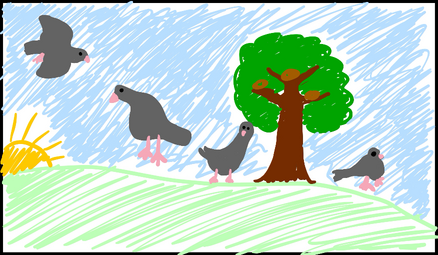409618: GYM103647 A Night Nesting
Description
You've been birdwatching all day, and it's finally sunset!

Any second now, the $$$n$$$ pigeons will be flying home back to their nests. As you wait an anticipation, you realize something: there are only $$$m$$$ nests in the tree! Some of the pigeons will need to share a nest in order to have somewhere to sleep at night.
It would be quite uncomfortable to share a nest with other pigeons, so a natural question arises: if the pigeons rest optimally, how many pigeons must there be in the fullest nest?
InputThere is only one line of input, which contains two integers, $$$n$$$ and $$$m$$$ ($$$1 \leq n, m \leq 10^{18}$$$). $$$n$$$ represents the number of pigeons returning home, and $$$m$$$ represents the number of nests.
OutputOutput a single integer, the number of pigeons in the fullest nest if the pigeons distribute among the nests optimally.
ExamplesInput15 5Output
3Input
4 3Output
2Note
In the first test case, the pigeons can evenly distribute themselves, yielding 3 pigeons in each of the 5 nests.
In the second test case, no matter how they arrange themselves, there will always be a nest containing at least 2 pigeons.